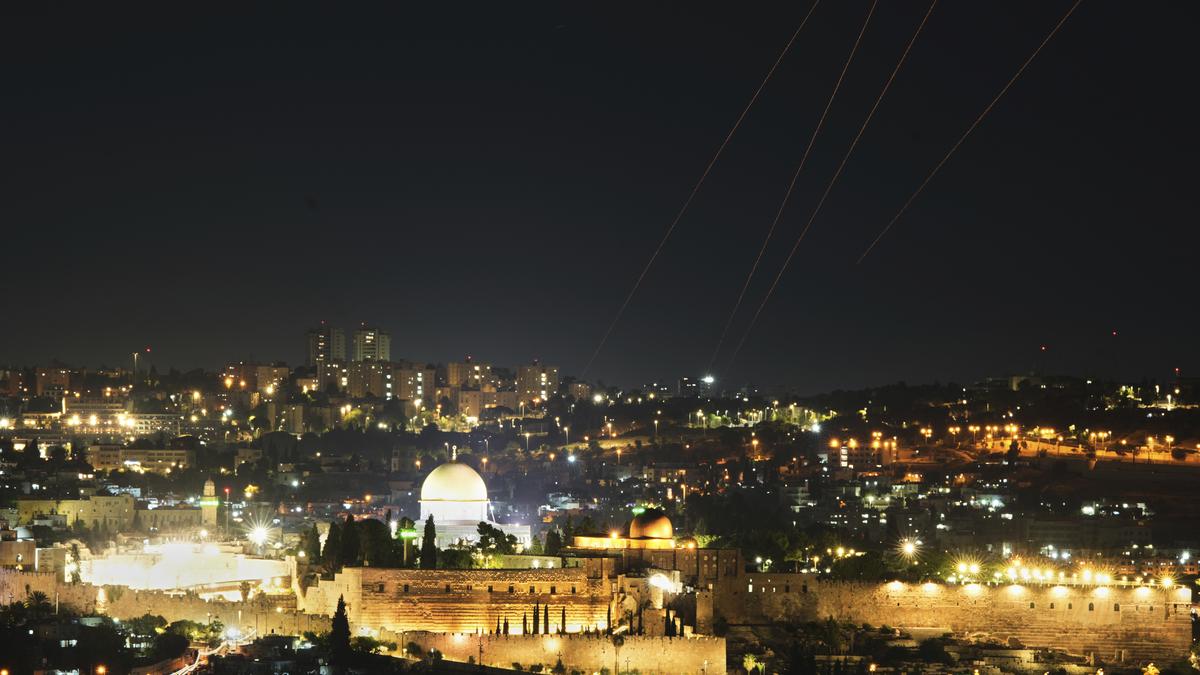
Morning Digest: Grief-stricken kin give DNA samples to identify victims of Ahmedabad flight crash; Iran launches new wave of missile attack on Israel, and more
The Hindu
The Hindu Morning Digest gives a select list of stories to start the day. Read the top news today on June 14, 2025
The air outside Ahmedabad’s Civil Hospital hung thick with unspoken grief. Dozens of families sat in rows, some clutching their family members, others staring blankly at the ground or photographs of loved ones on their mobile phones — waiting to give DNA samples that might finally bring their loved ones home. Inside the autopsy rooms, forensic teams moved through their grim work. Charred remains required careful examination; dental records became precious clues. The work continued through the night, matching what remained to names that once belonged to living, breathing people.
The black box was recovered on Friday from the roof of the hostel mess building of B.J. Medical College where the Air India flight AI171 crashed into on Thursday (June 12, 2025), said the Aircraft Accident Investigation Bureau (AAIB), a division of the Ministry of Aviation. Its analysis could provide vital clues about what triggered the disaster. A black box is a small device that records information about an aircraft during its flight. It helps in investigation of aviation accidents.
Twenty-four hours after one of the worst aviation disasters in recent memory, Ravi Thakor stood outside BJ Medical College in Ahmedabad, visibly distressed as he continued his search for his mother and toddler daughter. Both were inside the hostel mess into which Air India’s Ahmedabad–London flight crashed minutes after take-off on Thursday, killing all but one on board.
A day after Air India flight AI-171 crashed shortly after takeoff from the Ahmedabad airport, India’s aviation safety regulator, the Directorate General of Civil Aviation (DGCA), issued fresh inspection guidelines for the airline’s Boeing 787 Dreamliner fleet, which are powered by GEnx engines. These new guidelines will be mandatory from Monday, June 15.
Sirens and a round of explosions, possibly from Israeli interceptors, could be heard booming in the sky over Jerusalem early Saturday (June 14, 2025) and the Israeli military said another attack was taking place. The Israeli military urged civilians, already rattled by an earlier wave of missiles, to head to shelter. The Iranian outlet Nour News, which has close links with the paramilitary Revolutionary Guard, said a new wave was being launched.
Israel has been preparing for this for years. It opposed the 2015 nuclear deal. It carried out several clandestine attacks inside Iran, including the 2020 assassination of Mohsen Fakhrizadeh, the father of Iranian nuclear programme. It took the war directly to Iran in April 2024, by bombing the Iranian embassy in Damascus. All while, Israel argued that Iran’s nuclear and ballistic missile programmes were “an existential threat” to itself. And on June 13, Israel carried out a massive attack in Iran, targeting the country’s nuclear facilities, ballistic missile sites, the residences of its top Generals and more than two dozen nuclear scientists. The Israeli attack, which lasted for hours, is the heaviest military blow to the Islamic Republic since the revolution.
India abstained from a U.N. General Assembly resolution calling for a ceasefire in Gaza for the fourth time in three years, indicating a growing trend in the Modi government’s policy not to vote on statements critical of Israel’s bombardment of Gaza, in which 55,000 have been killed. India had voted in favour of a UNGA resolution for ceasefire in December 2024, making this a significant departure from India’s position just six months ago.













